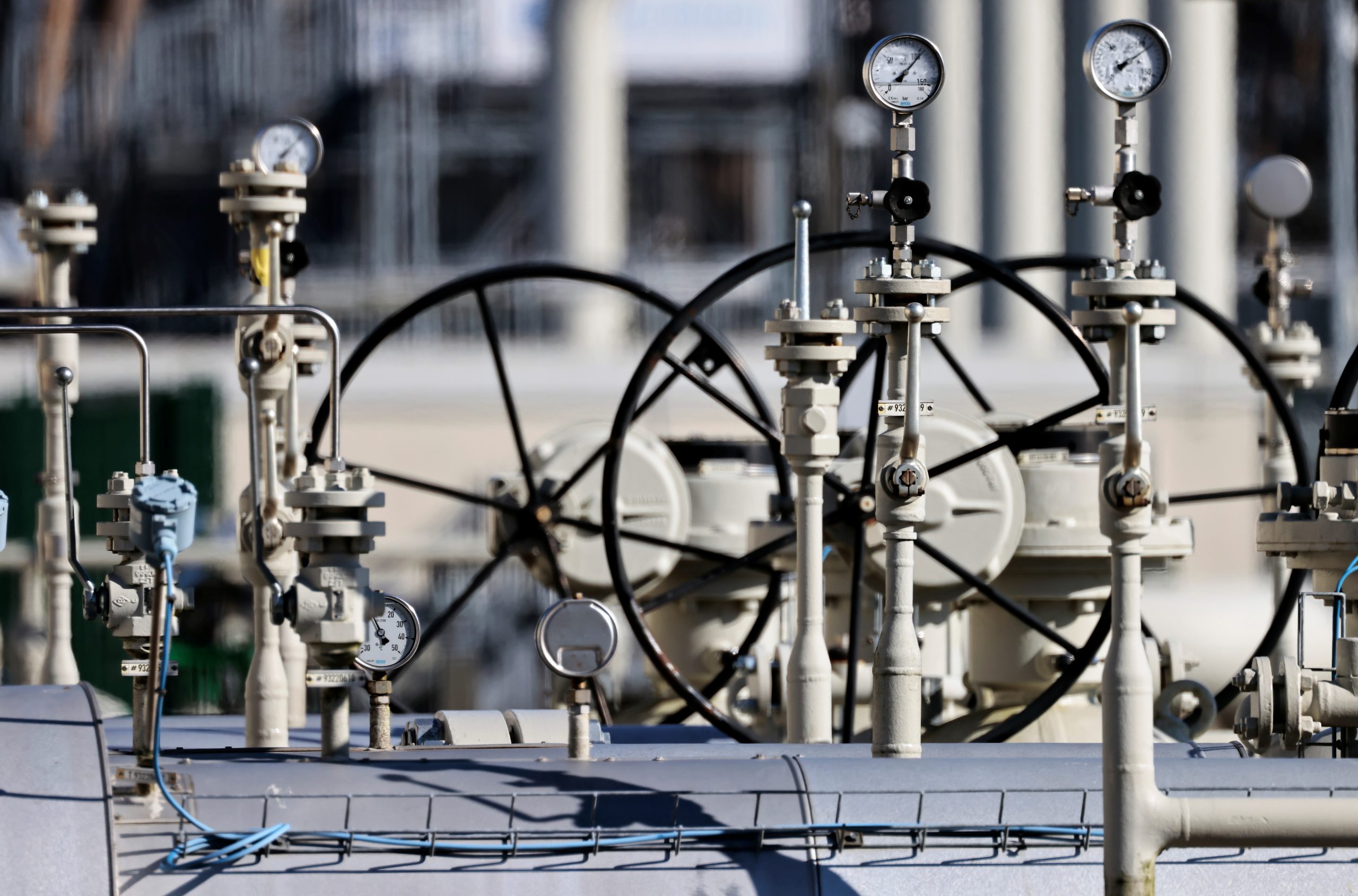
[elfsight_social_share_buttons id=”1″]
Germany faces certain recession if already faltering Russian gas supplies completely stop, an industry body warned on Tuesday, as Italy said it would consider offering financial backing to help companies refill gas storage to avoid a deeper crisis in winter.
European Union countries from the Baltic Sea in the north to the Adriatic coast in the south have been outlining measures to cope with a supply crisis after Russia’s invasion of Ukraine put energy at the heart of an economic battle between Moscow and the West.
The EU relied on Russia for as much as 40% of its gas needs before the war – rising to 55% for Germany – leaving a huge gap to fill in an already tight global gas market. Some states have temporarily reversed plans to shut coal power plants in response.
Global gas prices have sky-rocketed, driving surging inflation higher still and creating a bigger headache for policy makers trying to haul Europe back from an economic precipice.
Germany’s BDI industry association slashed its economic growth forecast for 2022 on Tuesday to 1.5%, revising it down from 3.5% expected before the war. It said a halt in Russian gas deliveries would make recession inevitable.
Russian gas is still being pumped via Ukraine but at a reduced rate and the Nord Stream 1 pipeline under the Baltic, a vital supply route to Germany, is working at just 40% capacity, which Moscow says is because Western sanctions are hindering repairs. Europe says this is a pretext to reduce flows.
The slowdown has hampered Europe’s efforts to refill storage facilities, now about 55% full, to meet an EU-wide target of 80% by October and 90% by November, a level that would help see the bloc through winter if supplies slowed further or were halted.
Italian Ecological Transition Minister Roberto Cingolani said Italy need to step up its refilling efforts and said Rome needed to consider how to help companies fund purchases of gas for storage.
An Italian government source said a state guarantee was a potential option to help lower the cost of financing.
“Gas currently is so expensive that operators cannot put money into it,” Cingolani said.
The benchmark gas price for Europe was trading around 123 euros ($130) per megawatt hour (MWh) on Tuesday, below this year’s peak of 335 euros but still up more than 300% on its level a year ago.
EARLY WARNING
Italy, alongside others such as Germany, Denmark, Austria and the Netherlands, has activated the first early warning stage of its three-stage plan to cope with a gas supply crisis.
As part of Germany’s contingency plans, the Bundesnetzagentur gas regulator unveiled details of a new auction system to start in coming weeks, aimed at encouraging manufacturers to consume less gas.
But regulator said it was not time to declare an all-out emergency, or the third stage of its crisis plan, that would see the country ration gas to industry to protect vital services and households.
“I am very much in favour of carefully examining when the right time is for the highest alert level,” Bundesnetzagentur chief Klaus Mueller told German broadcaster BR.
The sky-high European price has attracted more LNG cargoes, but Europe lacks the infrastructure to meet all its needs from LNG, while the global LNG market is already stretched.
Disruptions to a major U.S. producer of liquefied natural gas that provided shipments to Europe add to the challenge.
Europe is seeking more pipeline supplies from its own producers, such as Norway, and other states, such as Azerbaijan, but most producers are already pushing at the limits of output.
As the crisis extends across Europe, even a small consumer like Sweden has joined European allies in in triggering the first stage of its energy crisis plan.
The state energy agency said on Tuesday that supplies remained robust but its latest move signaled “to industry players and gas consumers connected to the western Swedish gas network, that the gas market is strained and a deteriorating gas supply situation may arise.”
Sweden, where gas accounted for just 3% of energy consumption in 2020, depends on piped gas supplies from Denmark, where storage facilities are now 75% full. Denmark activated the first stage of its emergency plan on Monday.
($1 = 0.9470 euros)
Copyright 2022 Thomson/Reuters
